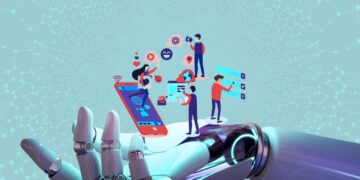Four or more parents?
There are other technologies on the horizon that might enable even more people to share genetic parenthood of a baby. Scientists are working hard to turn human skin and blood cells into egg and sperm cells in the lab. They’ve already done this in mice. If they can manage to do it in people, the possibilities for biological parenthood expand even further.
The first application would be to enable same-sex couples to have genetically related children. You could, for example, turn the skin of one man into an egg cell, and fertilize it with the sperm of his partner to create an embryo.
But you could also use the same technology to create another sperm or egg cell from that embryo. In theory, you could do this with sex cells from two couples, ultimately creating an embryo that has four genetic contributors.
Things get even more confusing here, because the four adults would actually be grandparents, and the embryos created in the middle step would be the baby’s parents. Some scientists have said that, technically, these babies would be born orphans. But the way others see it, they’d have four parents.
Of course, a genetic connection is not really what makes someone a parent. A parent is not the supplier of DNA—it is the person who takes care of the child and provides an environment for them to flourish.
You don’t need to be a child’s biological parent to do this. That’s obvious, but it’s also backed up by data collected by Vasanti Jadva, at University College London. Jadva and her colleagues have followed the progress of 223 children born around 2000. While 80 of the children were conceived in the typical way, 51 resulted from egg donation, 50 were conceived with sperm donation, and 42 were gestated by a surrogate. But there was no real difference in the children’s well-being throughout their childhoods.
By the age of two, the children that resulted from donors and surrogates showed no difference in social, emotional, or cognitive development. If anything, they appeared to have more positive relationships with their parents than those conceived in the typical way.
And they weren’t particularly bothered about the circumstances of their conception, either. By the time they were 21 years old, most of them weren’t concerned about having been born through egg or sperm donation or surrogacy, Jadva said at the meeting in Amsterdam.
Source by www.technologyreview.com





























